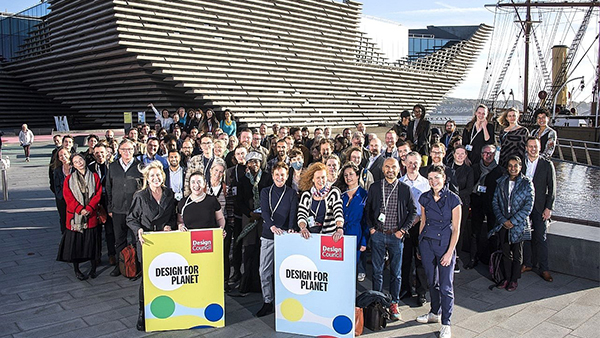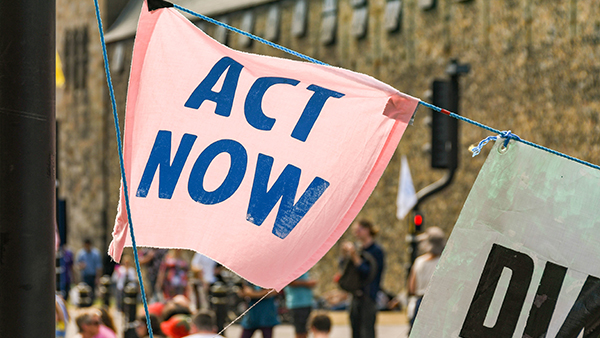Not many free evenings in this job: Monday I was chairing the event with David Halpern, Tuesday representing the RSA in the battle of the think tanks, Wednesday on a panel for the first LBC/RSA debate broadcast live from the Great Room and last night back in the Great Room for a Green Alliance event about how best to get across the message on climate change. Here I am on Friday evening hacking out only my third post of the week.
I had some really good comments on my previous post about the limited potential impact of green consumerism in reducing carbon emissions and this was one of my themes at the Green Alliance event. The Alliance had commissioned a number of thinkers – from experts on the brain to advertising executives - to suggest new ways to communicate on climate change. There was an emphasis in the essays on the need to talk about values and also to be positive about a green future. Who could disagree? Well, actually, me.
My view is that the climate change argument is being lost. There are many reasons: The tendency to overstate the certainty of the science; the way that some seem to want to use the issue to smuggle in a socialist utopia through the green back door; the use of over blown rhetoric about saving the world and providing global leadership; the confusing shift from apocalyptical talk of oil running out and the countries being consumed by the sea to rosy accounts of how easy it will be for us all to live carbon free lives. Not to mention the constantly changing advice about whether we should or should not buy shipped produce or get wind turbines fitted or new boilers installed.
The net effect is that more and more people (who for perfectly understandable reasons would rather not have to make sacrifices) are starting to view the climate change argument as a conspiracy by the establishment to screw the common man. If this seems overstated look at the way the opinion polls have shifted or how climate change scepticism has apparently rejuvenated the National Party in Australia
My recommended message would be pared down to the minimum:
It is Government’s responsibility to seek economic growth while managing risk. Climate change is complicated and the science not certain but no one except the most dogmatic would deny that it is a very big risk. We do not know exactly how climate change would affect us directly in the UK but we do know that problems in other parts of the world soon wash up on our shores. So our strategy must be to balance growth with achieving a level of carbon emissions in line with necessary global action to manage the risk.
This means we will have to make some difficult decisions about regulation and taxes to reduce activities which generate carbon emissions, and we will have to increase the share of Government money which goes into to sponsoring research and development in new green technologies.
Some of these decisions will be unpopular and people will ask if they are necessary. But just as hard pressed families spend a significant proportion of their income on car or house insurance, even though their house probably won’t burn down and they won’t crash their car, so we must insure our future against what is a bigger and more likely danger.
There is a trade off point between growth and carbon reduction. It implies a significantly lower rate of growth than we are used to as a society. But we can improve that trade off point if families and communities use commitment and ingenuity to think of new ways of live and work more sustainably. As a Government we will support these initiatives as much as we possibly can.
I would then get all the major Party leaders to sign up to this statement at a public event hosted by the Queen and broadcast on every channel. Only something as simple and clear as this can get public opinion back on track. Otherwise I fear we will have to give up the battle for public support until climate change is so unquestionably real no one can deny it. For many or most of the world’s inhabitants that will be too late.
Related articles
-
Regenerative organisations: the time is now, the place is here
Joanna Choukeir
Regenerative organisations are vital to our regenerative future. The time is now for the RSA to emerge as such an institution.
-
A design revolution for the climate emergency
Joanna Choukeir
Joanna Choukeir on Design for Planet, the global gathering of designers during COP26, and the changes design must make.
-
The public are ready to go further and faster on net zero
Anthony Painter
The public are ahead of policy-makers and, indeed, most of the business world. COP26 is an enormous opportunity to catch up. Global leaders should take it.




Be the first to write a comment
Comments
Please login to post a comment or reply
Don't have an account? Click here to register.